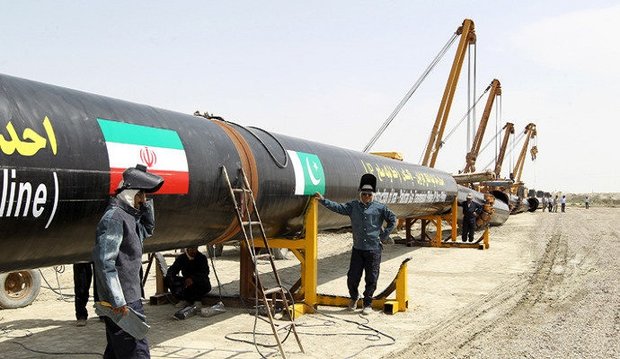Last week, Imran Khan was sworn in as the new premier of Pakistan. In his first televised address to the nation, the cricketer-turned-politician outlined his vision for Pakistan and vowed to build the foundation of Naya Pakistan (New Pakistan), which was the dream of country's founding fathers Mohammad Ali Jinnah and Sir Mohammad Iqbal.
There are many pressing issues facing the country and the new government faces myriad challenges on multiple fronts. The biggest challenge, as per experts, is the flailing economy. It will be an uphill task for the new government to turn around the crippling economy and rebuild various institutions that have debilitated due to rampant corruption, cronyism and lack of work ethics.
In his inaugural speech, Khan also asserted his willingness to improve ties with neighboring countries, including Iran. The relations between Islamabad and Tehran are significant because the two countries are inter-dependent in many ways. Pakistan has acute shortage of energy while Iran has abundant energy resources. The two countries had in the past agreed to enhance cooperation in the energy sector but it didn't see much headway. With the political transition in Islamabad, the two neighbors are expected to open a new chapter in their relations.
Pakistan is going through a critical phase in its history. According to latest reports, supply and demand has increased by whopping 40 percent. Load shedding in many of the major cities has reached 15 hours a day. Foreign investments have plummeted to a new low. Imports and exports gap is increasing sharply and several industries have shifted their base to other countries. The situation is alarming and the new government has its task cut out.
Pakistan has many options to address its energy crisis, Turkmenistan-Afghanistan-Pakistan-India (TAPI), CASA-1000 and Qatar LNG projects to name a few. But one of the important and less talked about projects that the new government needs to revive is the Iran-Pakistan gap pipeline project or? peace pipeline? It is not simply a gas pipeline, but an energy lifeline for Pakistan.
At a time when Pakistan is facing acute energy crisis, this ambitious project has assumed extraordinary significance. Khan has reportedly promised to revive the long-stalled gas pipeline project and implement it on priority basis, which definitely augurs well for Pakistan.
Economists believe this 'peace pipeline' alone can address Pakistan’s power crisis. In summer, power shortage reaches 6,500 MW. Demand for natural gas in Pakistan has exceeded supply. Pakistan's domestic gas production, currently at about four billion cubic feet per day (CFD), will fall to two billion CFD by 2020 when demand will rise to eight billion CFD, as per a report published in Express Tribune.
This gaping hole of six billion CFD will be partially filled by Iranian gas. Statistical figures show around 750 MM CFD gas flow in the pipeline is projected to help add 4,000MW electricity into the system at an economical rate, along with creating job opportunities in remote areas of Baluchistan and Sindh.
The entry of Iranian gas will restore the 2,232MW of thermal power generation capacity with the diversion of about 406 MM CFD, leaving 344 MM CFD for other uses such as manufacturing fertilizers and supplying gas to domestic consumers. Overall, Pakistan will be saving the $2.3 billion in energy imports. Experts believe that Pakistan could have managed a better bargain, rather than settling for 70% of the market price of gas.
China already has also shown interest in this project and they are willing to invest in it. Because China already is involved in the Gwadar port project in Pakistan, for this project and many others projects, China needs gas and oil. Pakistan can make a plan. LNG terminal could be set up at Gwadar Port for handling and processing gas imports, which will give a boost to economic activities at the seashore.
Imran Khan's government has vowed to revive the gas pipeline project, which can be a game-changer. The two sides need to finalize all outstanding issues, especially in the wake of US sanctions on Iran, and implement the project. It is a historic opportunity for the two countries to transform their relationship into energy partners. This project can be a panacea to Pakistan's energy crisis.
MNA/TT


























Your Comment